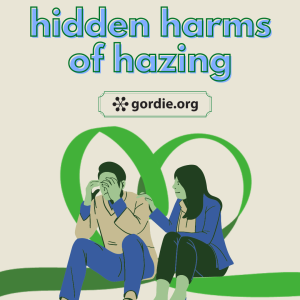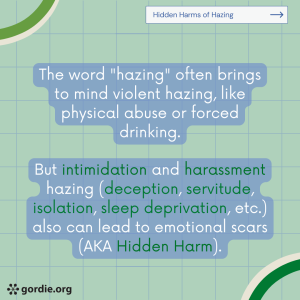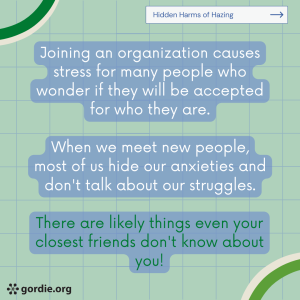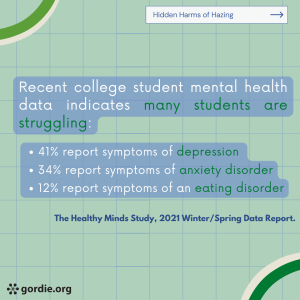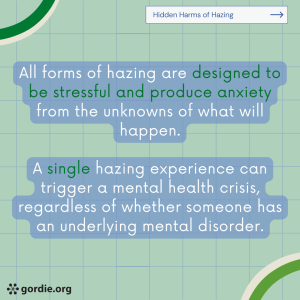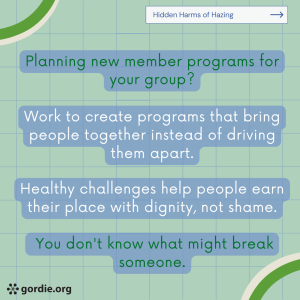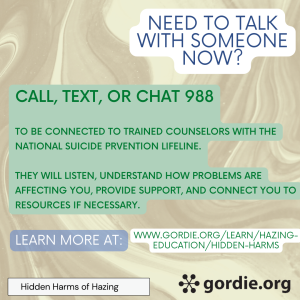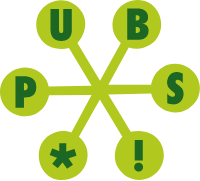Details
Permission is granted to copy and distribute in any medium or format in unadapted/unaltered/unedited form only, for noncommercial purposes only, and only so long as Gordie Center logos are not removed.
When you download this file, you will receive a .zip folder containing the following 7 graphics and alt. text to share on your social media:
Format
Instagram
Topic
Hazing
Audience
Faculty & Staff
Students
Parents
